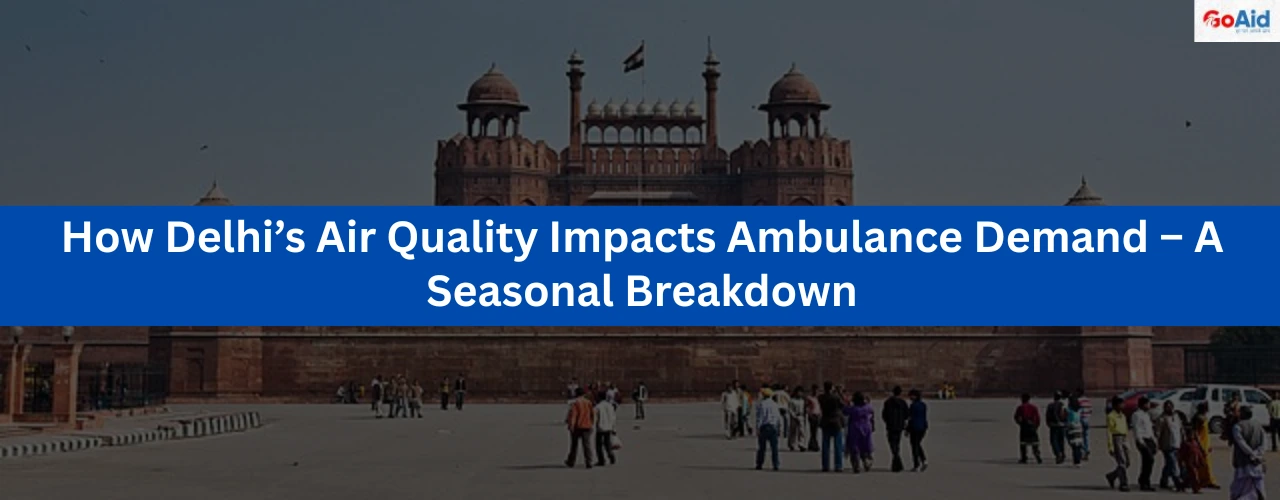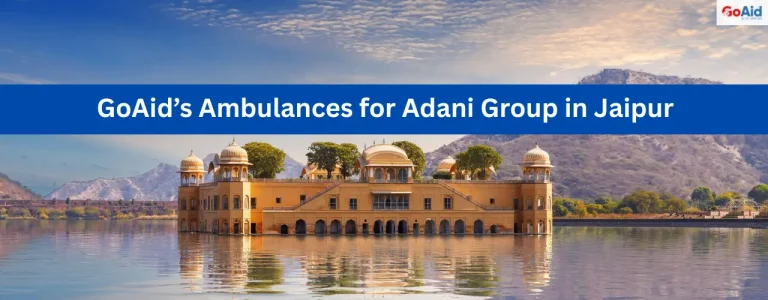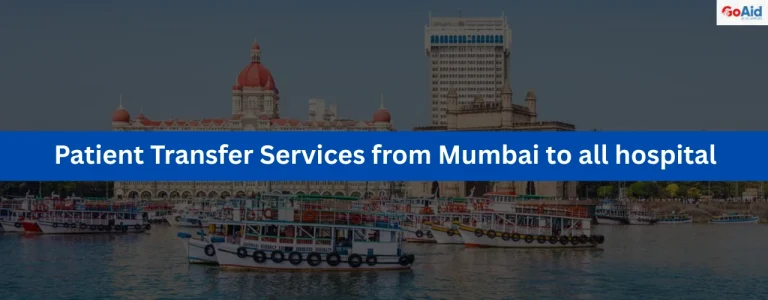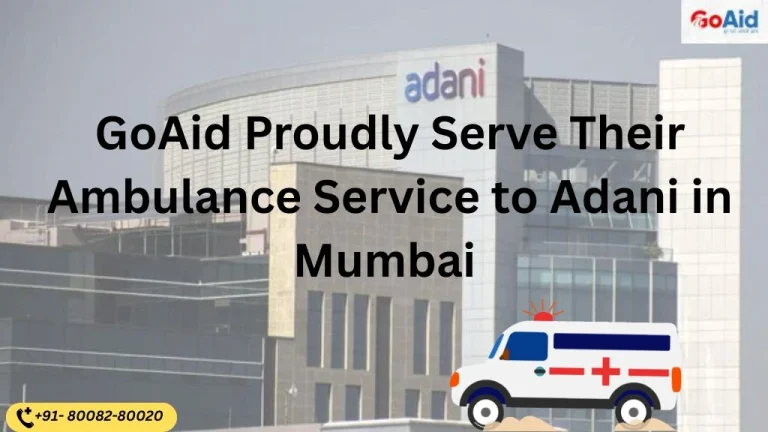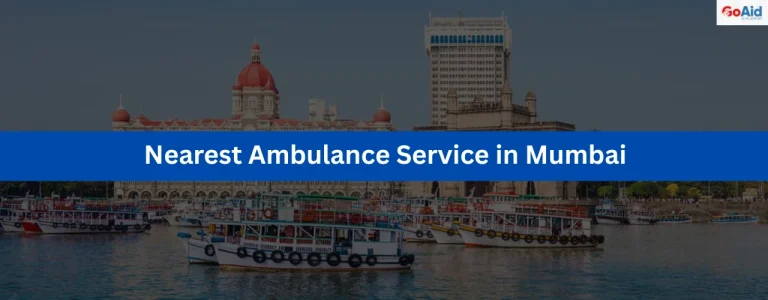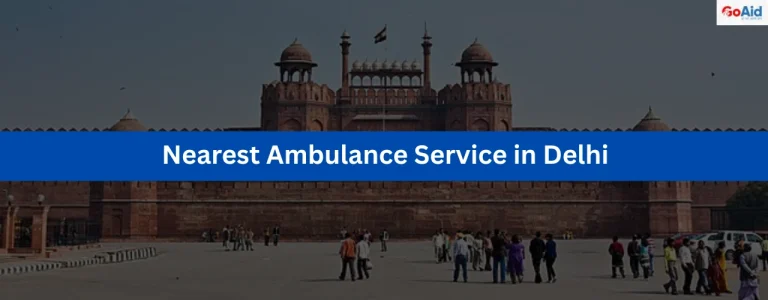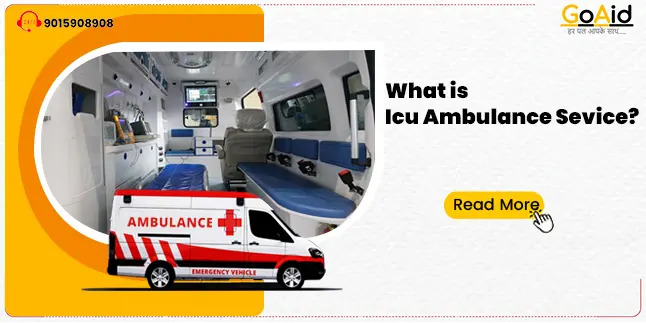Delhi’s Air Quality has become a major public concern, especially with its direct link to rising health emergencies. The worsening air quality of Delhi significantly increases the need for a responsive ambulance in Delhi, especially during critical months. Poor air conditions often trigger respiratory issues, heart problems, and other emergencies, leading to a spike in ambulance demand.
GoAid Ambulance Service, recognized as the Best Ambulance Service in Delhi, continues to serve 24/7 in all environmental conditions. No matter how poor the air quality gets, GoAid stands strong with its fleet of the top ambulance in Delhi. In this blog, we’ve explained every factor affecting Delhi’s air quality and how it directly impacts ambulance needs. Read on for the complete insight!
What is Air Quality?
Air quality refers to the condition or cleanliness of the air, particularly in relation to pollutants and harmful substances. It is measured by the concentration of pollutants such as particulate matter (PM), nitrogen dioxide (NO2), sulfur dioxide (SO2), and ozone (O3).
Delhi’s air quality has been a concern due to increasing industrialization, vehicular emissions, and construction activities. Poor air quality leads to health issues like respiratory problems, heart diseases, and aggravated pre-existing conditions.
Air Quality of Delhi often reaches hazardous levels, especially during certain seasons, affecting the overall health of the population. GoAid Ambulance Service plays a critical role in providing rapid medical support during these periods of poor air quality. With it, we try to ensure timely assistance for individuals suffering from air pollution-related health issues.
Factors that Affect Air Quality in Delhi
These are the important factors that affect the air quality in Delhi:
1. Vehicular Emissions
The high volume of vehicles in Delhi emits harmful gases like nitrogen oxides and particulate matter, significantly deteriorating air quality.
2. Industrial Pollution
Factories and industries release smoke and chemicals into the air, contributing to smog and harmful particulate matter in the atmosphere.
3. Construction Activities
Construction sites often generate dust and particulate matter, which contribute to worsening air quality, especially during dry seasons.
4. Burning of Crops
Seasonal crop burning in neighboring states adds massive amounts of smoke and particulate matter to Delhi’s atmosphere, significantly deteriorating air quality.
5. Weather Patterns
Wind direction, humidity, and temperature can either disperse or concentrate pollutants, impacting air quality levels in Delhi.
6. Geographical Factors
Delhi’s location in a basin surrounded by hills can trap pollutants, leading to air quality deterioration during certain times of the year.
7. Burning of Fossil Fuels
The use of coal, diesel, and other fossil fuels for heating and power generation contributes heavily to the air pollution in Delhi.
How Delhi’s Air Quality Impacts Ambulance Demand in Delhi
The impact of air quality on ambulance demand in Delhi is directly related to the health issues arising from poor air quality. During periods of high pollution, hospitals and emergency services experience a surge in patients suffering from respiratory distress, heart attacks, and asthma exacerbations.Â
Delhi’s air quality frequently drops during the colder months, especially in winter, due to factors like crop burning and temperature inversions, which trap pollutants. This increases the demand for responsive ambulance services in Delhi as more people require immediate medical attention.
During these times, GoAid Ambulance Service becomes crucial, as it is prepared to handle the rise in emergencies. With it, we provide fast and efficient response times. Best Ambulance in Delhi can help alleviate the pressure on hospitals by quickly transporting patients in critical condition. The seasonal air quality fluctuations underscore the need for reliable and responsive ambulance services throughout the year.
Seasonal Breakdown for Air Quality in Delhi—Which Season Affects the Most?
Air quality in Delhi changes with the seasons, and each one affects pollution levels differently. Here’s how:
1. Winter
Winter brings the most severe drop in Delhi’s air quality. Crop burning, fog, and temperature inversion trap pollutants near the surface. The dense smog severely impacts respiratory health, significantly increasing the need for responsive ambulances in Delhi, especially for asthma, COPD, and cardiac emergency patients. This is the most critical period.
2. Summer
In summer, pollution disperses better due to stronger winds and higher temperatures. However, intense heat and frequent dust storms can still degrade the air quality of Delhi. People with respiratory issues may experience discomfort, but ambulance demand slightly stabilizes compared to winter. GoAid Ambulance Service remains alert for heatstroke and breathing issues.
3. Monsoon
The monsoon helps wash away pollutants from the air, resulting in significantly improved Delhi air quality. However, waterlogging and humidity can cause health hazards like infections and vector-borne diseases. While pollution-related ambulance calls reduce, responsive ambulance in Delhi still plays a crucial role in emergencies caused by weather-related health issues.
4. Autumn
Autumn marks a shift with increasing pollution levels due to dryness and post-harvest stubble burning in nearby states. Calm winds and cooling air begin trapping pollutants again. Air quality deteriorates steadily, and ambulance demand in Delhi starts to rise. GoAid Ambulance Service gears up early to manage this seasonal transition.
How GoAid Serves the Best in all Seasons?
GoAid Ambulance Service in Delhi is known for its 24/7 availability, advanced equipment, and trained medical teams that remain fully functional across all seasons. Whether it’s the smog-filled winter, the heatwaves of summer, or monsoon flooding, GoAid Ambulance in Delhi ensures timely medical support at every corner of the city.
Their responsive ambulance in Delhi is equipped to handle respiratory, cardiac, and seasonal health emergencies effectively. With strong coordination and a reliable dispatch system, GoAid swiftly adapts to seasonal health risks. This makes it the best ambulance service in Delhi year-round. Be it polluted air or seasonal illnesses, GoAid remains a trusted partner for Delhiites during all kinds of medical emergencies.
Conclusion to the Impact of Air Quality of Delhi on Ambulance Demand
In conclusion, we’ve covered all critical aspects, highlighting the impact of air quality in Delhi on ambulance demand. From understanding what air quality is to its seasonal influence and the rising need for responsive ambulances in Delhi, this blog detailed every angle. GoAid Ambulance Service continues to meet the city’s urgent medical needs in every season with expertise, speed, and trust. If you live in Delhi or nearby, knowing this can be life-saving.
FAQs related to the Impact of Air Quality of Delhi on Ambulance Demand
Question-1: Why does Delhi’s air quality impact ambulance demand?
Answer: Poor Delhi air quality causes respiratory and cardiac issues, increasing emergency cases and the need for responsive ambulance in Delhi services like GoAid.
Question-2: Which season has the worst air quality in Delhi?
Answer: Winter has the worst air quality of Delhi due to smog and stubble burning, drastically increasing ambulance needs across the city.
Question-3: How does GoAid handle emergencies during smog season?
Answer: GoAid Ambulance Service in Delhi deploys standby ambulances and oxygen support. With it, we try to ensure fast response even in dense smog conditions.
Question-4: Can air pollution trigger heart problems?
Answer: Yes, prolonged exposure to polluted air can cause cardiac stress, prompting emergency calls to top ambulance in Delhi like GoAid.
Question-5: Is GoAid available during extreme weather conditions?
Answer: Absolutely. GoAid Ambulance in Delhi operates 24/7, even in storms, smog, or floods. This makes it a trusted ambulance service in Delhi.

